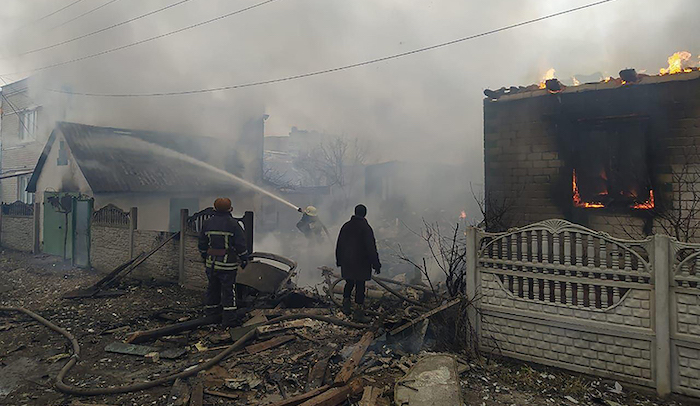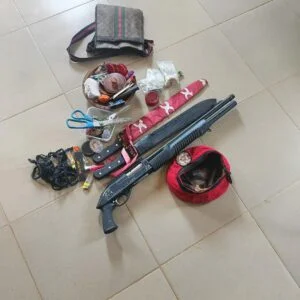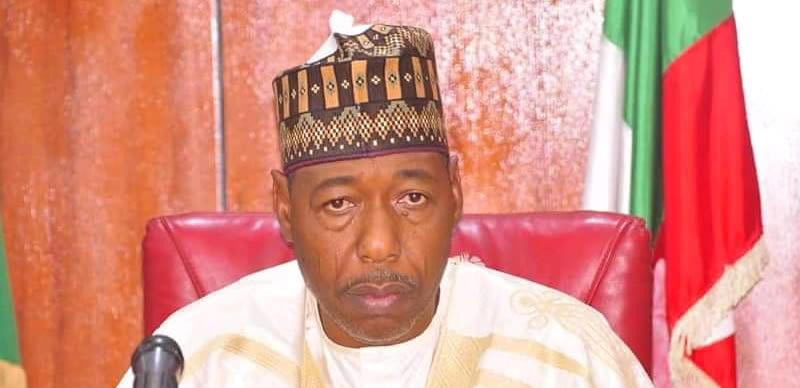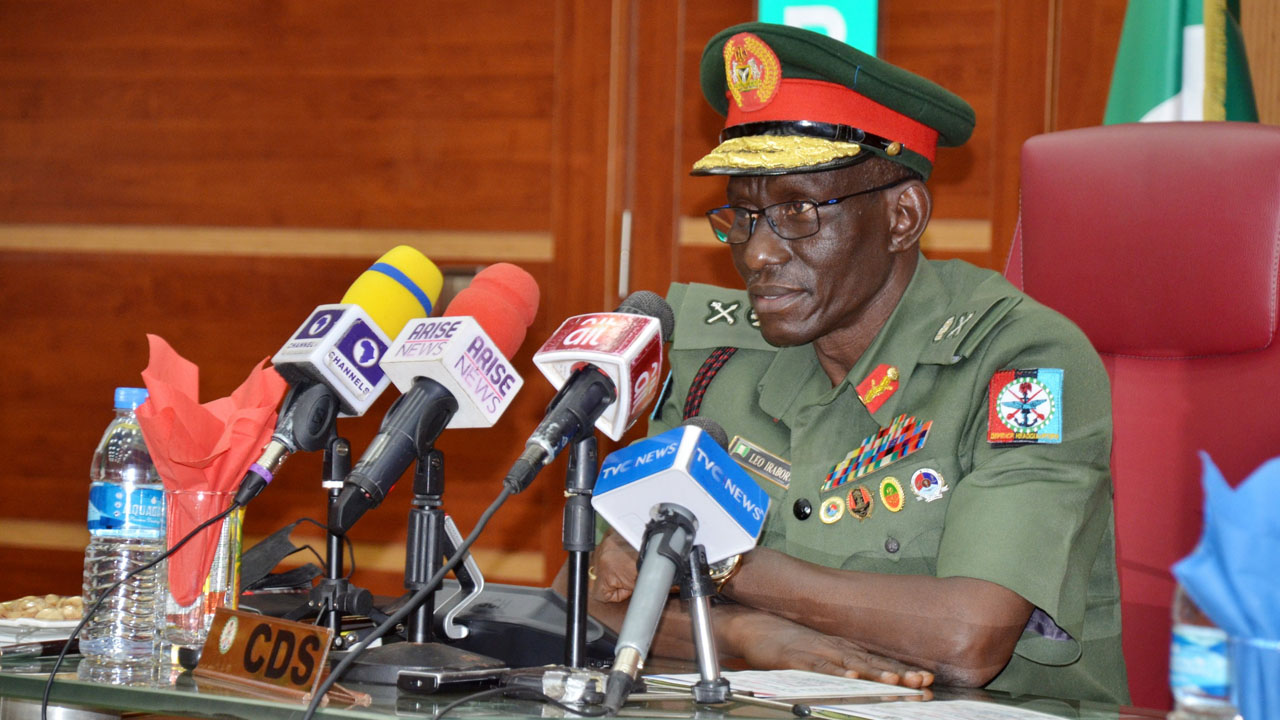Crime
Heavy Fighting as Russian Troops Enter Sievierodonetsk in Eastern Ukraine

By Derrick Bangura
Russian troops have entered the outskirts of the Ukrainian city of Sievierodonetsk, the regional governor said on Monday, describing “very fierce” fighting in the ruins of a city that has become the focus of Moscow’s offensive.
Russia has concentrated its firepower on the last major population centre still held by Ukrainian forces in the eastern Luhansk province, in a push to achieve one of President Vladimir Putin’s stated objectives after three months of war.
Incessant shelling has left Ukrainian forces defending ruins in Sievierodonetsk, but their refusal to withdraw has slowed the massive Russian offensive across the Donbas region.
Luhansk region governor Serhiy Gaidai said Russian troops had advanced into the city’s southeastern and northeastern fringes. But he said Ukrainian forces had driven the Russians out of the village of Toshkivka to the south, potentially frustrating Moscow’s push to encircle the area.
“Capturing Sievierodonetsk is a fundamental task for the occupiers … We do all we can to hold this advance,” Ukrainian President Volodymyr Zelenskiy said in a televised speech.
“Some 90% of buildings are damaged. More than two-thirds of the city’s housing stock has been completely destroyed.”
European Union leaders were due to meet on Monday and Tuesday to discuss a new sanctions package against Russia, potentially including an oil embargo.
But EU governments have been unable to reach agreement in a month of talks, with Hungary in particular saying it cannot afford to shut off the Russian oil that supplies its refineries through the huge Soviet-era Druzhba pipeline, whose name means “Friendship”.
Ahead of the summit, German Economy Minister Robert Habeck expressed fears that EU unity was “starting to crumble”. Draft conclusions, seen by Reuters, indicated there would be little in terms of new decisions.
But EU foreign policy chief Josep Borrell said that “there will be an agreement in the end”, with a deal on the next sanctions package by Monday afternoon.
‘UNCONDITIONAL PRIORITY’
After failing to capture Kyiv in March, Russia announced that the focus of its “special military operation” was now to seize the entire Donbas region, consisting of two provinces, Luhansk and Donetsk, that Moscow claims on behalf of separatist proxies.
Russian Foreign Minister Sergei Lavrov on Sunday said the “liberation” of the Donbas was an “unconditional priority” for Moscow. read more
Capturing Sievierodonetsk and its twin city Lysychansk on the opposite bank of the Siverskyi Donets river would give Russia effective control of Luhansk province, a point at which the Kremlin might be able to declare some form of victory.
But by focusing its effort on a battle for the single small city – Sievierodonetsk housed only around 100,000 people before the war – Russia might be leaving other territory open to eventual Ukrainian counterstrikes.
The past few days have seen initial signs of a potential Ukrainian counteroffensive in the south, where Moscow is trying to consolidate its control of Kherson province, captured in the early weeks after it launched its invasion in February.
Kyiv says its forces pushed back Russian troops in recent days to defensive positions in three villages – Andriyivka, Lozove and Bilohorka – all located on the south bank of the Inhulets River that forms the border of Kherson.
The Institute for the Study of War think tank said this Ukrainian counterattack so far did not appear likely to retake substantial territory in the near term, but could disrupt Russian operations and force Moscow to reinforce the area.
Just to the north of the Kherson front, a suspected Russian strike damaged the centre of the Ukrainian-held town of Novyi Buh overnight, the town council said on Telegram.
Russia said it had also struck a shipyard in Mykolayiv, a major Ukrainian-held port just west of Kherson.
Separately, French Foreign Affairs Minister Catherine Colonna was due to meet Zelenskiy in Kyiv later on Monday to offer more support, the French foreign affairs ministry said.
The Ukrainian government urged the West to provide more longer-range weapons to turn the tide in the war, now in its fourth month. Zelenskiy said he expected “good news” in the coming days.
A Ukrainian soldier on patrol in trenches near the town of Bakhmut, southwest of Sievierodonetsk, spoke of a nagging fear that his government could be drawn into negotiating an end to the conflict that would result in Ukraine losing territory.
“You know now what I’m most afraid of, now that the fighting is so intense, so tough?” Dmytro, a former English language teacher, told Reuters television. “That we would be told: That’s it, stop it, we have a ceasefire.”
“A negotiated settlement can only happen on Ukrainian terms, and at present if it happened it would be a horror.”
Crime
Police Foil Cult Initiation in Anambra, Arrest Six Suspects

The Anambra State Police Command has foiled a cult initiation ceremony in Nawfia, Njikoka Local Government Area of the state.
Spokesperson for the Command, SP Tochukwu Ikenga, disclosed this in a statement issued on Tuesday in Awka.
According to Ikenga, the operation was carried out by police operatives around 9:30am on June 15, leading to the arrest of six suspects at the scene.
Recovered during the raid were one Jojef pump action gun, two cartridges, and a golden-coloured Lexus SUV with registration number ATN 202 AE. Other items found include two cutlasses, two scissors, a cap bearing the inscription of the Supreme Vikings Confraternity, charms, and substances suspected to be hard drugs.
“They are currently undergoing police interrogation to get more insight into their modus operandi, after which the case will be charged to court on the conclusion of the investigations,” Ikenga stated.
The police spokesperson reassured residents of the command’s unwavering commitment to fighting cultism and other related crimes across the state.
Crime
Court remands 2 over alleged attempted murder

An Ikeja Magistrates’ Court, Lagos, on Wednesday, remanded two persons, Olaitan Fasasi and Kehinde Tobiloba in a correctional facility over alleged attempted murder.
Fasasi, 40, and Tobiloba, 26, whose addresses were not provided, are being charged with conspiracy, attempted murder and membership of a secret society.
The Magistrate, Mr L.A Owolabi, did not take the plea of the defendants for want of jurisdiction.
Owolabi directed the police to forward the case file to the Director of Public Prosecution for legal advice.
He thereafter adjourned the case until May 31 for mention.
The Prosecutor, Josephine Ikhayere, told the court that the defendants committed the offences at about 5.02p.m on Feb. 15, at Mushin, Lagos.
She said that Fasasi, Tobiloba and others now at large, attempted to commit murder by shooting at a resident, Alfred Ademola.
“They armed themselves with a locally made gun. They belong to Eiye Confraternity, a group proscribed by law,”, she said.
Ikhayere said that the offences contravened Sections 230(1) and 411 of the Criminal Law of Lagos State, 2012.
He said that the actions of the defendants also contravened Section 2(3)(a)(b)(c)(d) of the unlawful societies and Cultism Law of Lagos State Law.
Crime
Man jailed 3 months for stealing mobile phone

An Area Court in Jos, on Tuesday, sentenced one Jeptha John, to three months imprisonment for stealing a Redmi mobile phone valued at N165, 000.
The judge, Shawomi Bokkos, sentenced the John after he pleaded guilty to the offence.
The judge, however, gave the convict an option to pay N20, 000 fine and N50, 000 restitution to the complainant.
Bokkos said that if the convict defaulted in paying the restitution, three months should be added to his sentence to make it six months imprisonment.
Earlier, the police prosecutor, Insp Monday Dabit, told the court that the case was reported at the B Division Police Station, Jos, on Dec. 1, 2024, by Ms Nerat Danjuma.
He said that the complainant alleged that the defendant trespassed into her house and stole her mobile phone valued at N165, 000.
The prosecutor further told the court that the offence contravened the Plateau State Penal Code, Law of Northern Nigeria.
-

 Headlines4 years ago
Headlines4 years agoFacebook, Instagram Temporarily Allow Posts on Ukraine War Calling for Violence Against Invading Russians or Putin’s Death
-

 Headlines4 years ago
Headlines4 years agoNigeria, Other West African Countries Facing Worst Food Crisis in 10 Years, Aid Groups Say
-

 Foreign4 years ago
Foreign4 years agoNew York Consulate installs machines for 10-year passport
-

 News1 year ago
News1 year agoZero Trust Architecture in a Remote World: Securing the New Normal
-

 Entertainment3 years ago
Entertainment3 years agoPhyna emerges winner of Big Brother Naija Season 7
-

 Headlines2 years ago
Headlines2 years agoNigeria Customs modernisation project to check extortion of traders
-

 Entertainment2 years ago
Entertainment2 years agoMovie download platform, Netnaija, announces closure
-

 Economy2 years ago
Economy2 years agoWe generated N30.2 bn revenue in three months – Kano NCS Comptroller
















